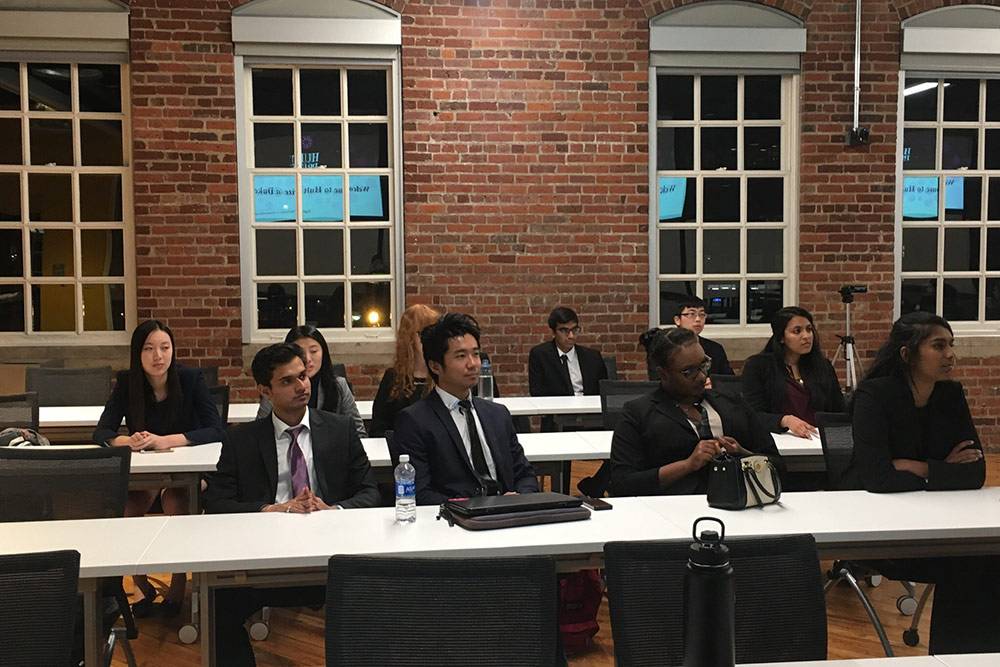
What began as an idea on Duke’s campus last semester is on its way to competing for one of the world’s top social entrepreneurship prizes.
Three seniors – Andrew Huang, Priyanka Venkannagari and Adia Coley – and one graduate student – Shantanu Sharma – make up the team that calls itself HaBaby and seeks to help both refugee women and their infants.
The students come from different areas of study but share a passion for social entrepreneurship. Several have experience working with refugees.
After advancing to a round of five finalists at Duke, the team pitched their idea and was selected as the Duke winners by a panel of four judges – meaning that HaBaby will be fast-tracked to the regional finals in March.
The Hult Prize is an annual competition that invites teams from universities to answer a social challenge chosen by former president Bill Clinton. The contest carries a grand prize of $1 million to implement the idea.
This year’s challenge asked, “Can we build sustainable, scalable social enterprises that restore the rights and dignity of 10 million refugees by 2022?”
Huang, who has worked with refugees, formed a team, and the members began discussing the life cycle of a refugee, trying to decide how they can help their lives.
The team’s first idea was to help employ female refugees who settle in other countries.
“Female refugees often stay at home even though they have a lot to contribute to the job market,” Venkannagari said.
They envisioned female refugees cooking at home and selling their food to local markets. That’s the idea the team submitted to the Hult Prize at Duke competition originally, but as time passed, their model continued to evolve.
They ran into legal challenges that stemmed from home-based cooking, and moreover, realized that their plan wasn’t targeting a specific customer.
And through more brainstorming, they eventually came up with a specific customer – babies and their mothers.
Around the world, there is an increasing need and desire for ethnic, organic options in the baby food market, Venkannagari said, and these needs aren’t being addressed by traditional baby food companies.
They planned to employ female refugees in the production of this baby food, which would then be sold in local markets. Soon, they expanded their idea even further: Refugee women will make the baby food, which will then be sold to both local customers and refugee camps.
HaBaby envisions its local customers as young, upper- to middle-class families who are interested in buying a product that is more diverse, customizable and can be delivered weekly.
Profits from these sales will help provide baby food to refugee camps at a heavily subsidized price.
Members of the team have used their connections to humanitarian aid organizations and NGOs to research the need for baby food in refugee camps.
Venkannagari said this research is still a work in progress and the team is working on next steps, such as sourcing locally in places where refugee camps are.
The team members say they have plenty of work to do before the next round of competition in March. They hope to develop the baby food soon and deepen their connection to the market and with NGOs.
The team is also raising $30,000, which will help fund the company as it competes for the $1 million prize.
“The HaBaby team have proposed a social enterprise approach that both increases refugees’ access to employment while also raising public awareness of the challenges facing refugees in their communities and around the world,” said Matt Nash, Duke I&E’s managing director for social entrepreneurship. “We wish the team luck in the next stage of the competition.”